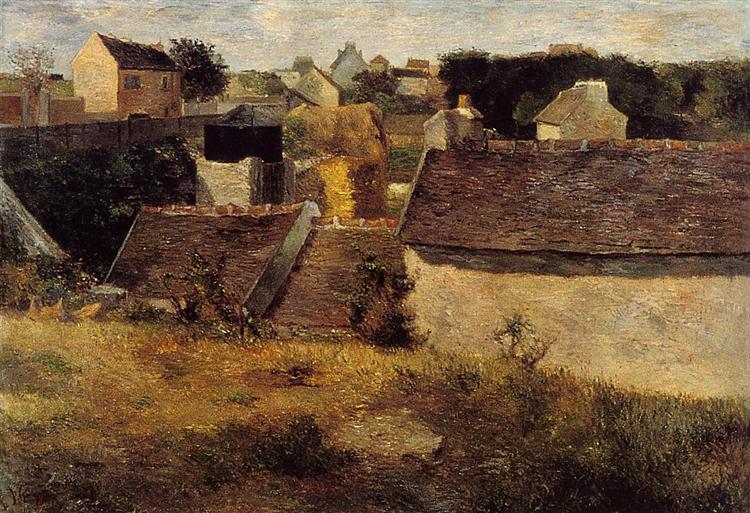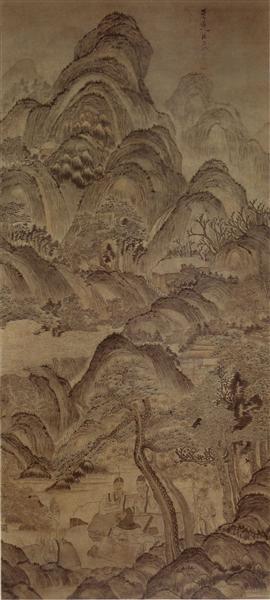Description
Paul Gauguin’s Houses at Vaugirard, painted in 1880, embodies a formative period in the artist’s career, marked by his search for styles that transcend mere visual representation. With a palpable focus on atmosphere and light, the painting reveals the influence that the landscapes of the Paris suburbs had on Gauguin’s perception of everyday life. This painting depicts the tranquility of a working-class neighborhood, where the simple houses on the streets seem to coexist in harmony with the surrounding nature.
The composition of “Houses in Vaugirard” is remarkably dynamic despite the apparent stillness of the setting. The houses, arranged on the canvas in a slightly diagonal manner, break with the rigidity of straight lines, creating a sense of movement. The backdrop, composed of lush green trees and a sky that gradually turns into softer hues, intensifies the sense of depth and perspective, inviting the viewer to immerse themselves in the scene. The variations in color and the application of paint, visible in the gestural brushstrokes, offer an emotional and almost sensorial understanding of the atmosphere of the place.
Gauguin, although later associated with symbolism and bold use of colour, displays a relatively restrained palette in this work, with a predominance of greens, yellows and subtle hints of blue. The houses are treated with earthy tones that evoke the muted and authentic character of the surroundings, manifesting an approach towards realism that captures the essence of everyday life. Light plays a crucial role in “Houses at Vaugirard”, where the artist seems to have carefully studied how the sun interacts with the structures and the landscape, reflecting the splendor of nature in an urban context.
In Gauguin’s approach, the painting is devoid of human figures, allowing the focus to be entirely on the interaction between the architecture and its surroundings. This absence of characters reveals the artist’s intention to emphasize the place itself as a space for contemplation and reflection, a feature that would become more prominent in his later works, in which he incorporates the human figure to tell more complex stories. Nevertheless, this work can be seen as a precursor to the thematic development that Gauguin would explore more intensively in his years in Tahiti, where the daily life of local communities was mixed with the symbolic.
It is interesting to note that Houses at Vaugirard was created at a time of transition for Gauguin, who initially aligned himself with Impressionism. The faintly outlined silhouettes of the houses and their natural surroundings anticipate a move toward a more personal and emotional style. This piece, although initially less celebrated than his later works, provides valuable context for his artistic evolution. Additionally, it offers a link between his training in Impressionism and his later inclination toward the synthesis of color and form. Thus, Houses at Vaugirard is both a testimony to the everyday environment of his time and a statement about the aesthetic quest that would define his legacy in art history.
KUADROS ©, a famous painting on your wall.
Hand-made oil painting reproductions, with the quality of professional artists and the distinctive seal of KUADROS ©.
Painting reproduction service with satisfaction guarantee. If you are not completely satisfied with the replica of your painting, we will refund 100% of your money.



